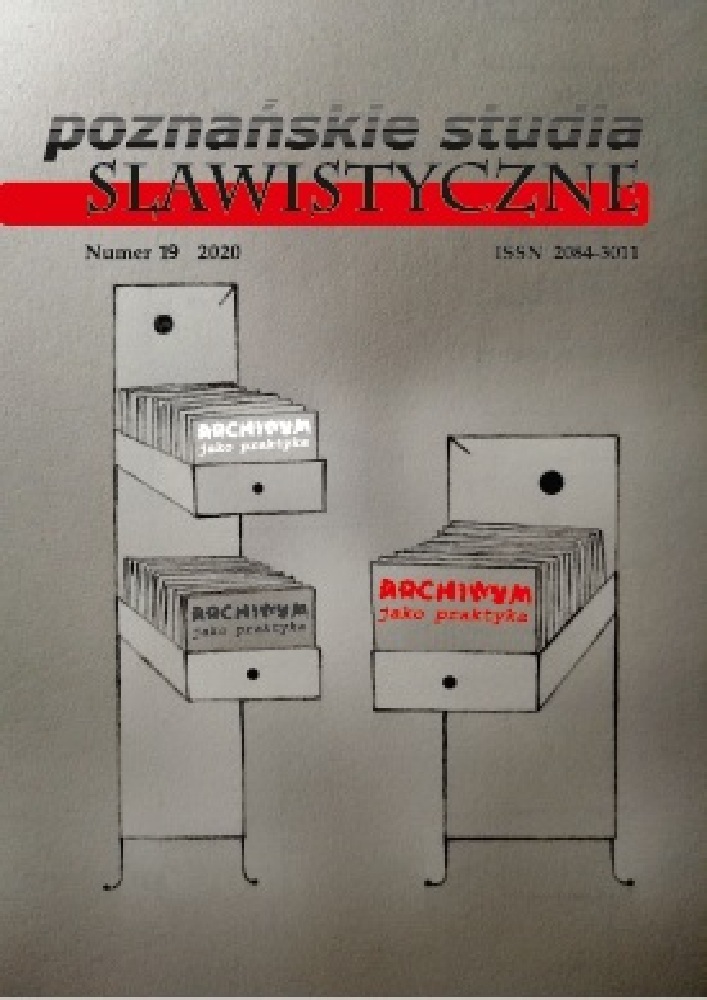Abstrakt
Emil Korytko, a Polish student in Lwów (Galicia, Austrian partition), was arrested on accusations of activity in a Polish independence movement organisation. After over two years long investigation and imprisonment, he was exiled to Ljubljana (Laibach), the capital of Carniola. While living in exile, he collected and studied Slovene folk poetry and the customs of Carniola, thus becoming a pioneer of Slovenian ethnology and at the same time one of the most influential activists of Slovenian national awakening. In Slovenia he is known better than in his native country. In November 2013, the University in Ljubljana (Faculty of Philosophy) organized, in cooperation with the Embassy of Poland in Slovenia, a symposium dedicated to the celebration of the 200th anniversary of his birth, including an exhibition about his life and career, held in the National and the University Library of Slovenia. In June 2019 this exhibition, supplemented by several documents, was held in the Slovenian Parliament as a celebration of the 180th anniversary of Korytko’s death. The bilingual book presented here reflects these cultural celebrations and the current state of knowledge about Polish-Slovenian ethnographer, philologist, poet, and translator.
Bibliografia
Bleiweis, J. (1875). Literarna zapuščina doktorja Franceta Prešerna. „Letopis Matice slovenske za leto 1875”, s. 153–175.
Kidrič, F. (1910). Paberki o Korytku in dobi njegovega delovanja v Ljubljani. „Ljubljanski Zvon” l. 30, s. 298–305, 364–368, 431–437, 490–497, 552–560, 682–688, 745–754.
Leeming, H. (1982). Kontakty polsko-słoweńskie po r. 1830. Doświadczenia zesłańca. Przeł. S. Hołdys, M. Mróz. „Śląski Kwartalnik Historyczny Sobótka” R. 37, nr 3–4, s. 431–439.
Magiera, J. (1911). Pamięci Emila Korytki. „Świat Słowiański” R. 7, t. 1, s. 192–207.
Novak, V. (1972). Emila Korytka nemški članki o slovenskem ljudskem izročilu. „Traditiones” l. 1, s. 27–52.
Plachtej Pavlin, B., Faletič, M. (ur.) (2019). V iskanju zgodbe Poljaka v izgnanstvu: Emil Korytko (1813–1839) v Ljubljani / W poszukiwaniu losu Polaka na wygnaniu: Emil Korytko (1813–1839) w Lublanie. Zbornik referatov in razprav, št. 2/2019. Ljubljana: Državni svet Republike Slovenije.
Prijatelj, I. (1908). Emil Korytko. In: Zbornik u slavu Vatroslava Jagića. Berlin: Weidmannsche Buchhandlung, s. 604–611.
Smólski, G. (1882). [Korespondencja z Lublany]. „Kraj” R. 1, nr 8, s. 7.
Wereszycki, H. (1986). Historia Austrii, wyd. 2. Wrocław: Ossolineum.
Франко, І. (1908). Еміль Коритко, забутий славянський етноґраф. „Записки Наукового товариства імени Шевченка” т. 86, кн. 6, s. 82–122.
[Franko, I. (1908). Emìlˊ Koritko, zabutij slavânsˊkij etnograf, „Zapiski Naukovogo tovaristva ìmeni Ševčenka” t. 86, kn. 6, s. 82–122].
Licencja
Prawa autorskie (c) 2020 Zdzisław Darasz

Utwór dostępny jest na licencji Creative Commons Uznanie autorstwa – Bez utworów zależnych 4.0 Międzynarodowe.

